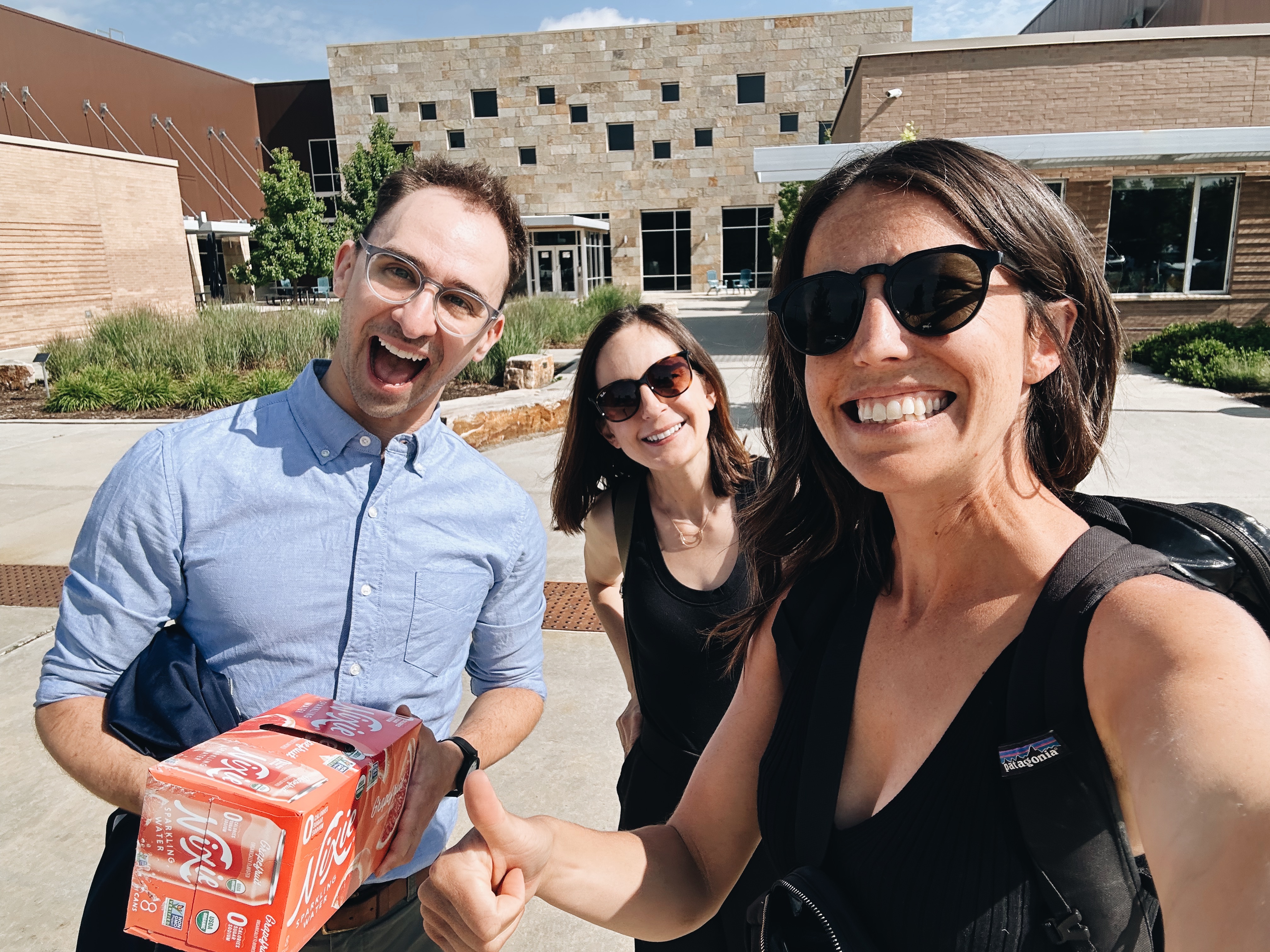Read time: 7 Minutes
Interested in a deep dive into how we do the work we do in order to supercharge your organization? Check out the Accelerator today. Want to get in touch? Email sam@opentent.com.
This month, I read It Doesn't Have To Be Crazy At Work by the founders of Basecamp. In my Monday morning “Release Notes” message to the team, I shared these quotes and my reactions to them. (Quotes from the book are italicized and occasionally bolded for emphasis):
- “It begins with this idea: Your company is a product. Yes, the things you make are products (or services), but your company is the thing that makes those things. That’s why your company should be your best product. Everything in this book revolves around the idea that, like product development, progress is achieved through iteration. The same thing is true with company development.
When you think of the company as a product, you ask different questions:
- Do people who work here know how to use the company?
- Is it simple? Complex? Is it obvious how it works?
- What’s fast about it? What’s slow about it?
- Are there bugs? What’s broken that we can fix quickly and what’s going to take a long time?
A company is like software. It has to be usable, it has to be useful. And it probably also has bugs, places where the company crashes because of bad organizational design or cultural oversights.”
I've thought about OT as a product for a while, but I like the questions:
- "Is it obvious how it works?" and
- "Are there bugs?"
Those questions point us in helpful directions for improving our product. It also helps point us toward mechanisms like time-boxed sprints for improving the "software" of the company.
- “We work on projects for six weeks at a time, then we take two weeks off from scheduled work to roam and decompress. We didn’t simply theorize that would be the best way to work. We started by working on things for as long as they took. Then we saw how projects never seemed to end. So we started time-boxing at three months. We found that was still too long. So we tried even shorter times. And we ended up here, in six-week cycles. We iterated our way to what works for us.
We're doing the three month time box now - and I'm very curious about the six week iteration, followed by two weeks off! That feels really good to think about for OT.
- “We didn’t just assume asynchronous communication is better than real-time communication most of the time. We figured it out after overusing chat tools for years. We discovered how the distractions went up and the work went down. So we figured out a better way to communicate. We don’t have status meetings at Basecamp. We all know these meetings —one person talks for a bit and shares some plans, then the next person does the same thing. They’re a waste of time. Why? While it seems efficient to get everyone together at the same time, it isn’t. It’s costly, too. Eight people in a room for an hour doesn’t cost one hour, it costs eight hours. Instead, we ask people to write updates daily or weekly on Basecamp for others to read when they have a free moment. This saves dozens of hours a week and affords people larger blocks of uninterrupted time.”
We’ve talked recently about trying to reduce our number of Zoom meetings, since we all have a lot right now. Could we use a tool like Polly to reduce or remove our project standups? What about other meetings?
- “The best companies aren’t families. They’re supporters of families. Allies of families. They’re there to provide healthy, fulfilling work environments so that when workers shut their laptops at a reasonable hour, they’re the best husbands, wives, parents, siblings, and children they can be.”
We've been talking about this for a while - we are trying to think of OT as a sports team rather than a family - but this language feels like a really powerful expression of this idea.
- “We’ve found that nurturing untapped potential is far more exhilarating than finding someone who’s already at their peak. We hired many of our best people not because of who they were but because of who they could become. It takes patience to grow and nurture your own talent. But the work it takes—tending to the calm-culture soil—is the same work that improves the company for everyone. Get to it.”
I love how the authors connected "nurturing untapped potential" with "tending to the calm-culture soil." Since, like plants, untapped human potential can grow only when the soil is calm and filled with nutrients. Yes!
- “Unlimited vacation is a stressful benefit because it’s not truly unlimited. Can someone really take five months off? No. Three? No. Two? One? Maybe? Is it weeks or months? Who’s to know for sure? Ambiguity breeds anxiety. We learned this the hard way. At one point we tried offering unlimited vacation, but we eventually noticed that people actually ended up taking less time off than they otherwise should have! That was exactly the opposite of what we intended.”
"Ambiguity breeds anxiety" - yep. In general I feel more and more like unlimited PTO might not be the right policy for us. There's some more nuance to this decision though.
This weekend I also started reading No Rules Rules by the CEO of Netflix, Reed Hastings. He dedicates a large section of the book to talking about how they arrived at their unlimited vacation policy - they were one of the first to create that policy and they are still one of the most prominent companies to have it. Reed talks about how when they first implemented this policy, people indeed took less vacation. What needed to happen was for company leadership to take lots of vacation and talk about it, a lot. Showing photos, celebrating it all over the place. Doing so started to change the "soft rules'' about vacation and enable more employees to feel like they could take ample time off, and now Netflix employees love this policy (according to Reed, at least). I think this is relevant for us. I don't think OT's leadership (me definitely included) takes enough time off and I don't think we talk about it enough to be good models. I'd love to learn from my team what you think here - if our goal is to help people feel like they can take more time off, does OT need a more traditional vacation policy or should we keep our current policy and focus on more leadership modeling of taking time off?
Have you read ‘It Doesn't Have To Be Crazy At Work’? Do you have your own tips or questions around calming your work you’d like to share? We would love to hear what’s working for you - reach out at sam@opentent.com.












